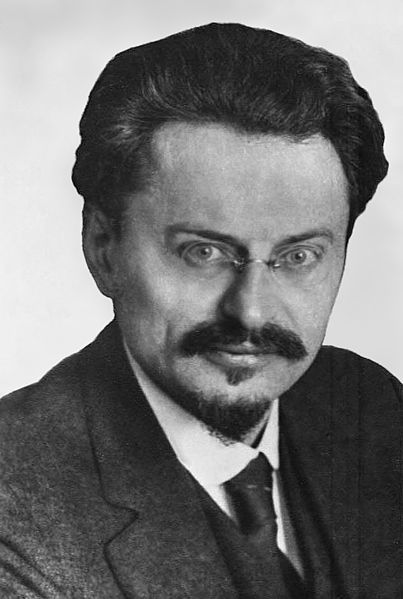Trotskyism is the political ideology and branch of Marxism developed by Russian revolutionary and intellectual Leon Trotsky along with some other members of the Left Opposition and the Fourth International. Trotsky described himself as an orthodox Marxist, a revolutionary Marxist, and a Bolshevik–Leninist as well as a follower of Karl Marx, Frederick Engels, Vladimir Lenin, Karl Liebknecht, and Rosa Luxemburg.
Leon Trotsky
The leaders of the Trotskyist Left Opposition in Moscow, 1927 (sitting: Leonid Serebryakov, Karl Radek, Leon Trotsky, Mikhail Boguslavsky and Yevgeni Preobrazhensky; standing: Christian Rakovsky, Yakov Drobnis, Alexander Beloborodov and Lev Sosnovsky)
Portrait of Trotsky
The Soviet of Workers' Deputies of St. Petersburg in 1905, Trotsky in the center. The soviets were an early example of a workers council.
Lev Davidovich Bronstein, better known as Leon Trotsky, was a Russian revolutionary, Soviet politician, journalist, and political theorist. He was a central figure in the 1905 Revolution, October Revolution, Russian Civil War, and the establishment of the Soviet Union. Alongside Vladimir Lenin, Trotsky was widely considered the most prominent Soviet figure and was de facto second-in-command during the early years of the Russian Soviet Republic. Ideologically a Marxist and a Leninist, his thought and writings inspired a school of Marxism known as Trotskyism.
Trotsky in 1917
8-year-old Lev Bronstein, 1888
Lev Davidovich Bronstein, 1897
Trotsky's first wife Aleksandra Sokolovskaya with her brother (sitting on the left) and Trotsky (sitting on the right) in 1897








